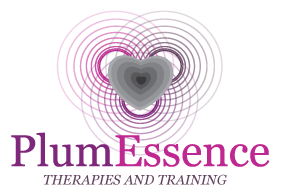This is the second in a series of blogs and videos to help give you an initial awareness of mental health problems. The first blog is here: https://plumessencetherapies.co.uk/the-meaning-of-mental-health/
The videos and blogs will cover an awareness of:
Mental Health in general, stress, anxiety, phobias, depression, post-natal depression, bipolar disorder, schizophrenia, dementia, eating disorders, ADHD, OCD and PTSD. All of these subjects will be based on my personal thoughts, my personal experience, and research used to pass my Mental Health Problems qualification. I have also been asked to talk about the difference between bullying and banter, and alcohol and drug dependency.
I hope you will find the information interesting and informative and it helps break the stigma of mental health and encourages people to talk about it.
Examples of Mental Health Problems are:
Anxiety and panic attacks. Anxiety is a normal emotion. It can be described as dread and inner turmoil. The person can be nervous, fearful and worry and these feelings are exaggerated, taking over and begin to interfere with every day life.
Depression. Depression can affect someone’s ability to think straight and effects how we feel about ourselves and the world around us. It can result in a person feeling worthless. Depression takes many forms, including:
Bipolar Disorder, also referred to as Manic Depression – episodes of feeling very high and then very low. It’s like very extreme mood swings. High episodes of bipolar disorder can make someone feel overly confident and can result in reckless behaviour which is usually quite risky to their own physical and mental health. Periods of being very low can result in suicidal thoughts and extreme worthlessness.
Postnatal depression or Postpartum depression affects people, usually recognised in women, after childbirth. It usually manifests itself within 6 weeks and can be slow progress or come on suddenly. People with postnatal depression tend to feel really low, irritable, lack self-worth and self-esteem and feel unable to cope sometimes, becoming quite hostile to friends, family and even children.
Rage and anger can be a mental health problem when they become regular occurrence and affecting the relationships with people they care about, work with or life in general. Rage and anger can manifest itself physically, towards others or resulting in self-harm, sometimes with poor coping strategies of drugs and alcohol to try and remain calm, which in themselves can cause further mental health problems.
Abuse of substances such as drugs (prescribed or un-prescribed) and alcohol, for instance. Reliance on drugs and alcohol can cause a spiral of physical and mental health problems which can be harder to recognise, cope with and manage.
That’s all for now. Just some examples of mental health problems. These will be expanded upon throughout the series.
In the next video and blog, I will look at how mental health care has changed over time and an indication of the problems people with mental health problems, may face day to day.
If you have any subjects you would like to cover, please let me know. If there is anything on here you would like to talk about, or find out about therapies and training offered by PlumEssence to help and educate about mental health, then look at www.plumessencetherapies.co.uk or call Tracey on 01889 808388 or 07803399594
